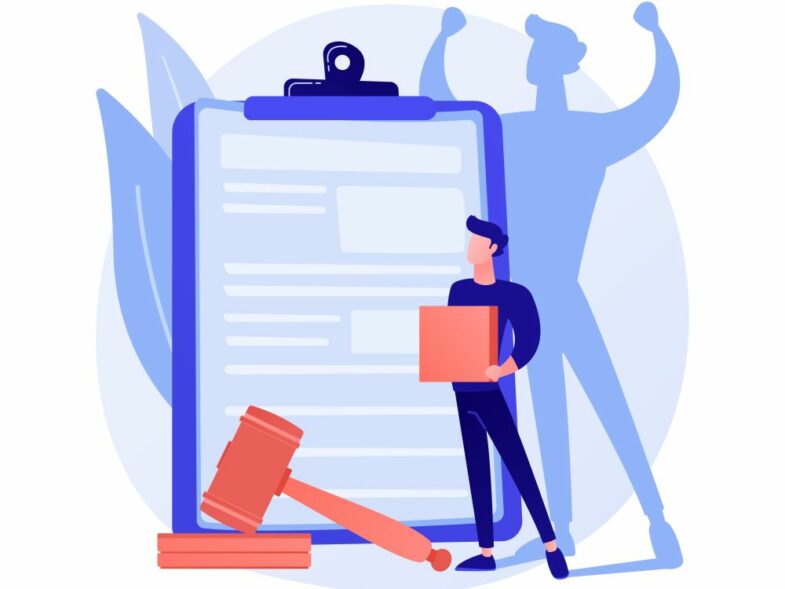Handling large legal cases used to mean rooms full of paperwork, late nights digging through documents, and teams of people trying to keep track of it all. That is no longer the reality. Technology has changed the way complex litigation works quietly and powerfully.
If you are working on big cases, especially those involving hundreds or thousands of plaintiffs, the old ways simply don’t cut it anymore. You need to move fast, keep everything organized, and make sure nothing falls through the cracks. That is where legal tech steps in.
In this article, you’ll see how technology helps legal teams manage large caseloads, stay organized, and work more efficiently across every stage of big litigation.
Smart Case Management
Mass tort cases are perhaps the most challenging type of practice. They involve a large number of plaintiffs who have all been harmed in a similar way, typically due to faulty products, drugs, or environmental catastrophes. Each case is different, but the central arguments tend to be the same. You’re juggling huge amounts of information while still needing to personalize each claim.
The volume of work in mass torts can increase rapidly. From client interviews and intakes to a collection of documents and filings with the court, each step introduces another level of complexity. It is not only unproductive to handle this type of scale manually. It can cause delays, errors, and opportunities lost.
That is why many firms now look for ways to optimize your mass tort practice workflow. Tools built specifically for this purpose help firms keep everything structured and on track. These platforms can automate repetitive tasks, streamline client communication, and help teams prioritize what needs to happen next. You can track medical records, settlement statuses, and case deadlines all in one place.
Streamlined Data Intake
When you’re dealing with hundreds of clients, gathering information quickly is key. Technology allows you to automate much of that process. For instance, online forms, client portals, and e-signatures speed things up while reducing errors.
Moreover, you don’t have to chase signatures or manually enter the same data again and again. Automation tools pull client info straight into the system and notify you when something’s missing. It is a huge time-saver and also helps keep things consistent.
That kind of precision matters. Even a small mistake in client records can become a problem later in large-scale cases. Technology helps keep the process clean and reliable.
Modern Discovery Tools
E-discovery tools have changed the game entirely. You don’t need a team of paralegals sorting through boxes of documents anymore. Today, you can use software that scans thousands of files and pulls out the relevant ones using keywords, metadata, and even pattern recognition.
Furthermore, these tools help spot important details that you might have missed otherwise. They also flag duplicate or irrelevant data, so you’re not wasting time.
If you’re up against a corporate defendant with deep pockets and an aggressive legal team, this can make a huge difference. You won’t get overwhelmed by the volume of information. Instead, you’ll be better prepared and more focused.
Seamless Team Collaboration
Big legal cases often involve teams spread out across cities or even countries. In such situations, remote collaboration tools keep everyone in sync. Secure chat platforms, real-time document editing, and shared calendars mean your team doesn’t need to be in the same room to work effectively.
This really matters when you’re racing against court deadlines or need input from a specialist in another office. You don’t lose time waiting for emails or playing phone tag. Everyone has access to the same information, and updates happen in real time.
Additionally, everything is trackable. You can see who made changes, when they were made, and where things stand. It cuts down on confusion and keeps communication clear.
Data-Driven Case Insights
When it’s time to talk numbers, whether to a judge, jury, or opposing counsel, having clean, accurate data can make your arguments stronger. Reporting tools help turn raw case information into visuals or summaries that support your legal strategy.
For example, you might want to show patterns in injury reports, highlight delays in medical treatment, or compare settlement values across jurisdictions. Good reporting tools can do all of that and more. And because the data is updated automatically, you don’t have to spend hours preparing it manually.
This gives you an advantage when you’re negotiating settlements or presenting evidence. You’re not just talking. You’re showing.
Final Thoughts
Legal tech won’t win your case for you. However, it will make you faster, clearer, and more prepared. It gives you time back, helps you keep track of everything, and reduces the mental clutter that comes with big cases. When you’re managing large volumes of data, working with multiple parties, and trying to keep everything moving forward, technology becomes more than helpful. It becomes essential.









